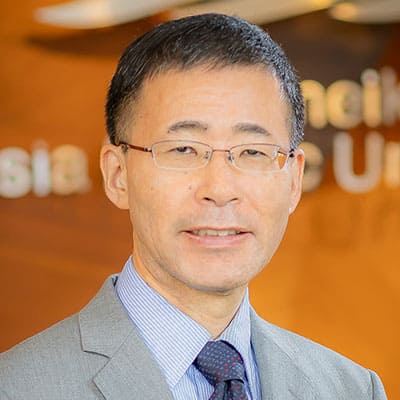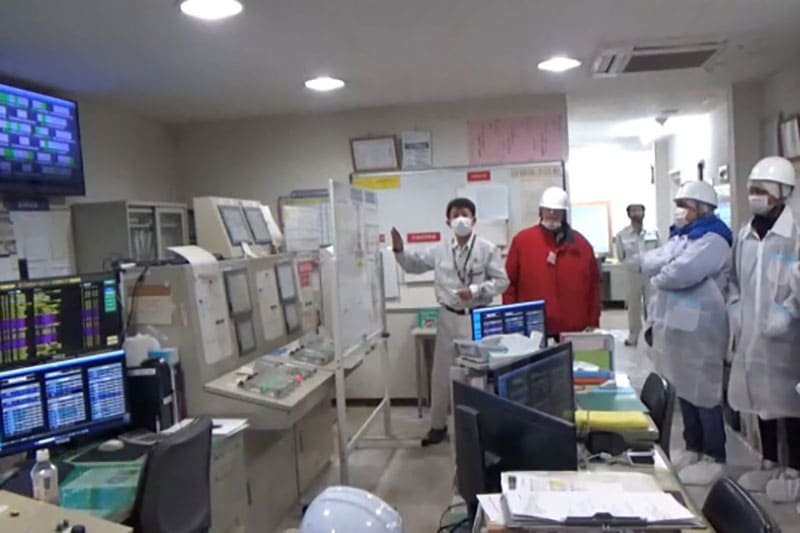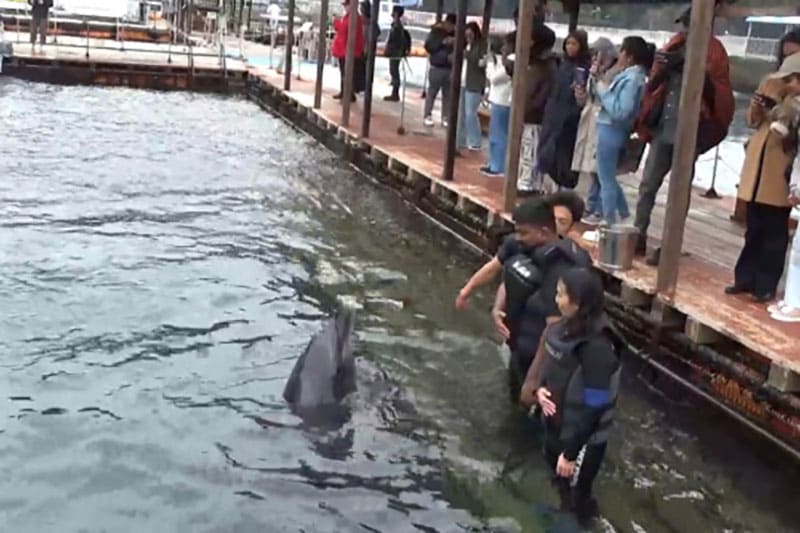Integrating All Kinds of Knowledge to Explore the Science of Management
Categories:
Overview
Identifying new communication theories across academic disciplines, developing "better management," and tackling the issues facing modern society
In contemporary society, situations that cannot be handled by conventional management are emerging one after another. This is because the forms of communication for management are changing rapidly. Communication has expanded from one-to-one in-person communication to one-to-many and many-to-many communication via social media, and new technologies like AI and the metaverse are now being added to the mix. I want to understand these kinds of communication styles and build new forms of management for them.
In this study, we systematize a new form of communication called "Topological Communication Activities." I am trying to establish a new communication theory by harnessing all academic disciplines, including business administration, economics, mathematics, engineering, and information science, as well as sociology and psychology, and utilizing the latest technologies in an interdisciplinary manner. Based on this, we aim to develop a style of management suited to the new era.
Underlying this focus on management research is the desire to promote Diversity, Equity, Inclusion & Belonging (DEI&B) in society. Creating a society in which a diverse array of human resources can participate and play active roles is expected to stimulate new communication and create better management. Conversely, better management will lead to the creation of a society in which a diverse array of human resources can participate and play active roles. These human resources will have a sense of belonging in their respective communities and seek to improve upon them. Aiming for this kind of future, I will forge ahead with research that can be practically applied in the real world, driven by unconventional ideas and actions.
A new form of communication Conceptual diagram of the Topological Communities’ Communication Activities Cycle (TCCAC)

* Community, subdistrict, and town refer to administrative units in China.
The concept developed by the principal investigator in a paper entitled “Research on Topological Communities’ Communication Activities Cycle regarding COVID-19 Control Policy Information during Lockdown in Shanghai, People’s Republic of China.” In China, the exchange of information in the form of TCCAC was very rapid and rotated many times in short cycles with information being fed back numerous times, which was the driving force behind the application of a strict zero-COVID policy to a population of 1.3 billion.
Novelty/Originality
Innovative management research that transcends disciplines and combines practice and theory
The main feature of this research is to explore better management through the lens of a novel communication theory.
When I try to investigate various management issues in today's society, I may arrive at questions such as "What kind of communication is being used?” or “What can I do to achieve the kind of communication I should adopt?”
To develop a new communication theory, I cannot break free from the traditional frameworks by relying on existing academic research fields and methods.
Therefore, in this study, I take a unique multifaceted and integrated approach. For example:
- I take an interdisciplinary approach from a variety of academic fields, while maintaining an awareness of the need to feed our findings back into business administration and economics. Transcending categories like the arts and the sciences, I integrate all different kinds of knowledge.
- The scope of this research includes the rapid and significant changes in communication due to the latest technologies such as AI, the metaverse, and quantum computing, with a focus on understanding management in this context and exploring what constitutes better decision-making.
- Adopting a basic stance of "Think Globally, Act Locally," we aim to generate innovation by mobilizing global perspectives and cutting-edge technologies to practically tackle local issues and the concerns of small and medium-sized enterprises.
This research stance is greatly influenced by my past experiences and activities. I worked at the Development Bank of Japan and in the business world for many years, and possessing expertise in management and new business creation among people from various national, ethnic, racial, and religious backgrounds. In addition, I have practical overseas experience (and the resulting multicultural understanding skills in four languages: Japanese, English, Chinese, and Indonesian) in various areas throughout Asia, including postings to Taipei, Beijing, Manila, Jakarta, Hong Kong, and Shanghai.
Another important feature of this research is that it is not limited to any specific area. For example, one of the areas we are currently focusing on is higher education support (university and graduate school classes) for students with mental and developmental disabilities. The goal is to provide new learning opportunities for students who have traditionally had difficulty participating with new forms of communication that utilize the metaverse and AI. This study aims to serve as a model case for new communication and management practices that maximize the abilities of diverse human resources.
This research can be conducted anywhere where better management, decision-making, and strategy formulation can be explored through new forms of communication.

Source: Justin B. Craig, Ken Moores (2017) Leading Family Business – Best Practices for Long-Term Stewardship. Praeger.
Another research area that we explore is family business management (FBM). We analyze the characteristics of universal management methods that have survived for generations in Japan from multiple perspectives to examine better management, corporate continuity, and contributions to the local community. The figure shows the SAGE framework used for this analysis.
Related Research
Research on Topological Communities Communication Activities Cycle regarding COVID-19 Control Policy Information during Lockdown in Shanghai, People’s Republic of China
Principal Investigator

Ritsumeikan Asia Pacific University
You can view and print a summary of this page's contents in a single PDF page here.








During my many years of service at the Japan Bank for International Cooperation and the Development Bank of Japan, I was stationed in six cities in Asia, and I have witnessed many different styles of management, from those employed by national governments and businesses in Greater China to those used by conglomerates and startups in other countries. On the other hand, when I am home in Oita Prefecture, I hear what many different people have to say, including elderly people in mountainous areas who face struggles due to a lack of transportation and small and medium-sized business owners who are in need of manpower.
In my view, these are all equally important and interconnected. I want to help the elderly people living in the mountainous areas, and I also want to help local small and medium-sized enterprises. This requires better communication and management. To realize this, you must be wary of stereotypes, commonly held beliefs, and biases as they can prevent you from seeing the true picture.
I hope to contribute to the creation of a community in which everyone can play an active role. Without being bound by conventional wisdom, we can bringing together various kinds of knowledge and harness the power of various academic disciplines, draw on the latest technologies, and take advantage of APU’s environment of DEI&B.
Ritsumeikan Asia Pacific University Faculty Information
researchmap